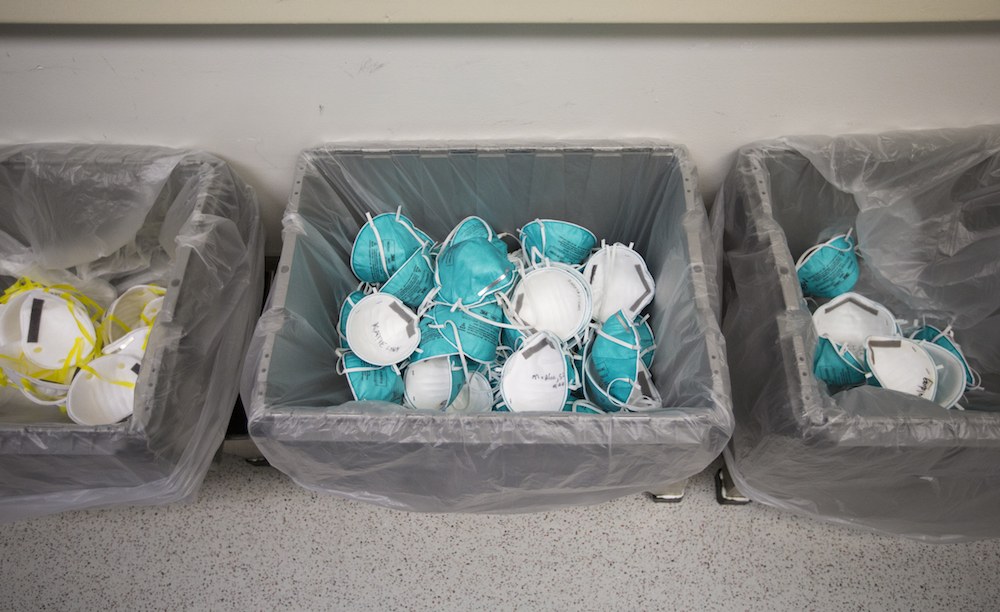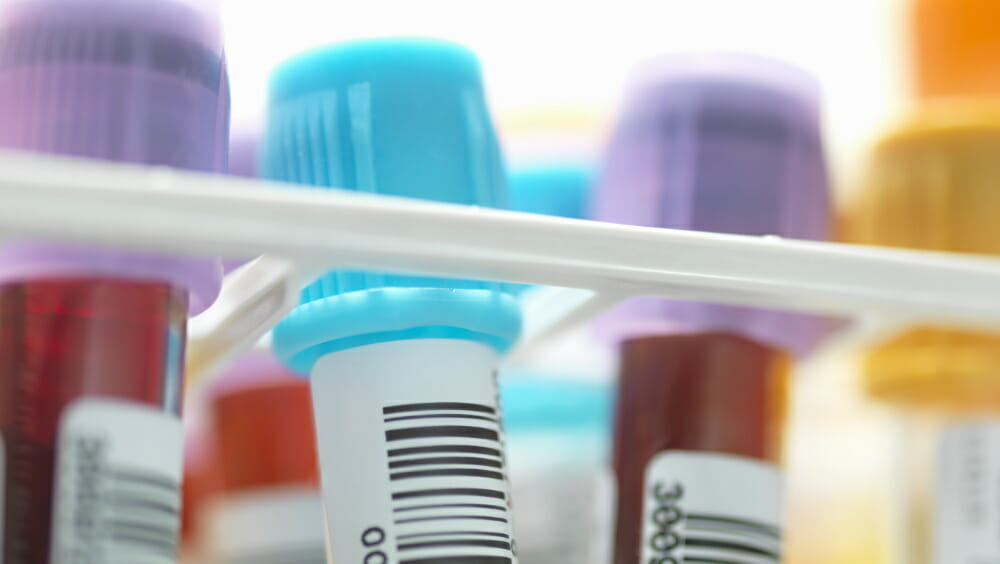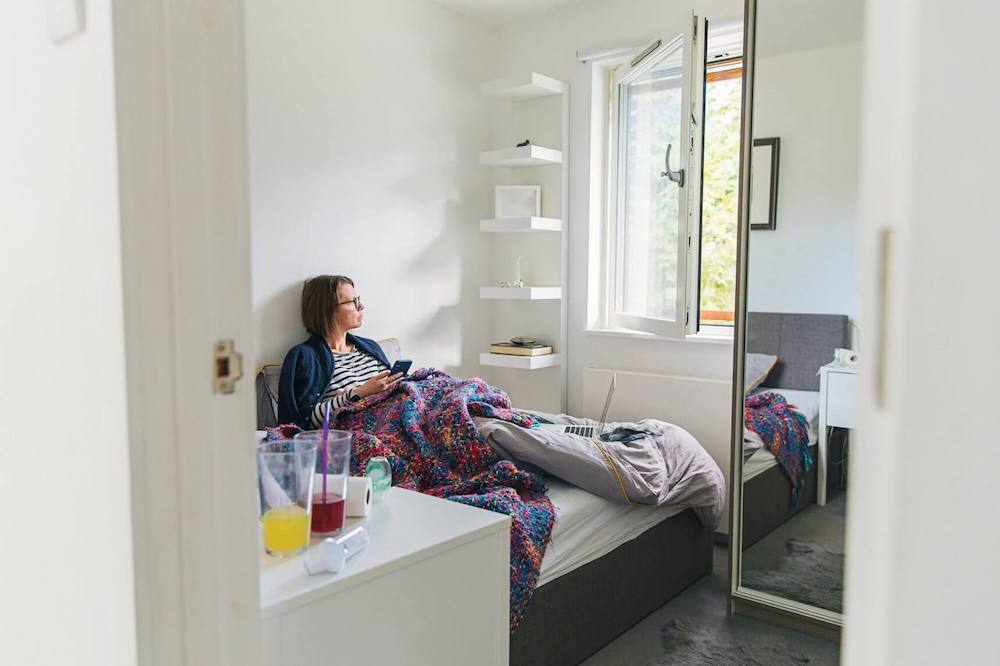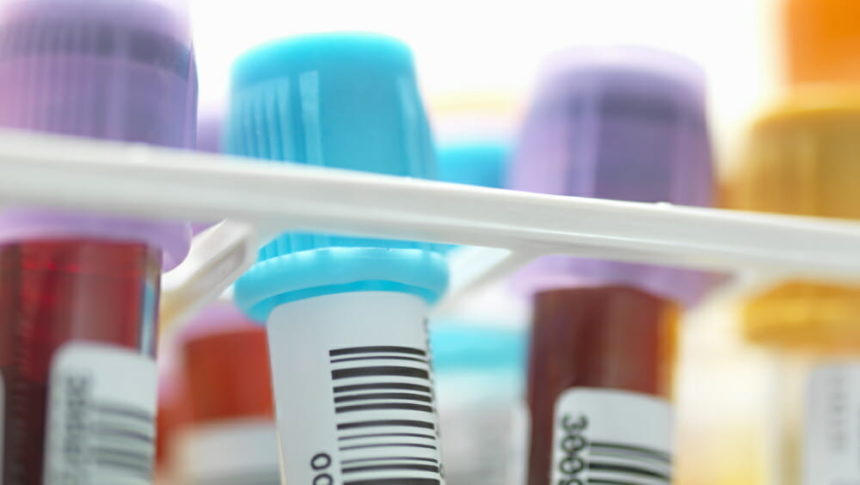“April is the cruelest month,” wrote the poet T.S. Eliot, who knew nothing of coronavirus but did know the 1918 influenza pandemic all too well. This current pandemic whipsaws us daily with the grimmest imaginable news interspersed with glimmers of hope. We’ll vote for hope any day (sending ballots by mail, of course).
Today’s Coronavirus Briefing is 1,101 words and will take you five minutes to read.
Top news
- Less than two weeks ago, Surgeon General Jerome Adams warned that America would soon be experiencing a “Pearl Harbor moment” and a “9/11 moment” as deaths from coronavirus surged. Since then, COVID-19 deaths in the U.S. have now claimed more American lives than the combined toll of Pearl Harbor, 9/11, and the Afghanistan and Iraq wars.
- Some good news: One of the New York metropolitan area’s largest health networks, Northwell Health, has discharged more than 3,300 COVID-19 patients over the past eight days, and the number of coronavirus patients in its hospitals is the lowest since April 3.
- More than 9,200 healthcare workers in the U.S. have been infected with the coronavirus, reports the Centers for Disease Control and Prevention (CDC). That’s the tip of a much bigger iceberg, as information on occupation was available for less than 20% of cases analyzed.
- With coverage of the pandemic focusing on the U.S., Europe, and Asia, it’s easy to overlook the fact that virtually no part of the world has been spared. Africa is reporting some 16,000 cases in 52 countries, with a lockdown in place in South Africa and other preventive measures being rolled out quickly across the continent.
The Takeaway
A bumpy ride gets bumpier. When watching the news, stay strapped in — and six feet away from the next rider on the roller coaster.

Rays of light
Healthcare professionals soldier on with shortages of equipment and no effective cure or prevention. But the search to find short-term stopgaps, as well as long-term answers, is proceeding with urgency.
- The advertising agency Klick Health has donated 300,000 masks to frontline workers in Toronto hospitals and health care facilities, along with 300 protective intubation boxes, reports Medical Marketing & Media’s Larry Dobrow.
- PPE such as masks, gowns and visors, could be re-used up to five times, according to McKnight’s Long-Term Care News, by using disinfection methods such as ultraviolet light, dry heat treatment or chemicals.
- The CDC has put together a tip sheet for extended use and reuse of N95 masks.
- While much of the treatment focus is on malaria drugs, dozens of other irons are in the fire. In Monthly Prescribing Reference (MPR), Brian Park reports promising early results from the use of remdesivir, an antiviral first developed to treat Ebola. In a small study of 53 severely ill COVID-19 patients, two thirds showed clinical improvement on the drug. As with all these early efforts, controlled trials are needed to validate results.
The Takeaway
Dire necessity is the mother of frantic invention (apologies to Plato).

In hot pursuit of antibody answers
- To help answer the perplexing unknown of how many people have been infected and recovered without having been tested, the U.S. National Institutes of Health is recruiting up to 10,000 adult volunteers for blood tests to determine whether they have developed antibodies to SARS-CoV-2. “This study will give us a clearer picture of the true magnitude of the COVID-19 pandemic … by telling us how many people in different communities have been infected without knowing it, because they had a very mild, undocumented illness or did not access testing while they were sick,” said Dr. Anthony Fauci.
- Another antibody study will be conducted among employees of 27 of the 30 Major League Baseball teams. The research will be conducted by Stanford University, the University of Southern California, and the Sports Medicine Research and Testing Laboratory.
- Speaking of baseball, yesterday was Jackie Robinson Day. If baseball had been in season, every player on every major league team — as well as managers and coaches — would have worn number 42 in honor of the man who broke the color barrier on April 15, 1947.
- MPR’s Diana Ernst reports that more than 70 companies are rushing to develop COVID-19 antibody tests, although only one has received emergency use authorization from the U.S. Food & Drug Administration. The FDA said this week that antibody tests cannot be used to diagnose the disease, only to detect the body’s immune response to infection.
- Antibody testing will also figure prominently in a nationwide program to investigate the use of blood plasma from recovered COVID-19 patients to treat severely ill patients. The collaborative effort is headquartered at the Mayo Clinic in Minnesota.
The Takeaway
The antibody discussion will increasingly move front and center as government leaders and public health officials ponder the “re-opening” of daily life. Who can safely return to work? Still elusive and unanswered: How long does immunity last for those who have been infected and recovered?

Sleepless in Seattle, and most other places
Insomnia and other sleep disorders are common among stressed-out and overworked health care professionals as well as people who are simply trying to balance working and living at home.
- The National Sleep Foundation has developed a set of guidelines for sleeping well throughout the COVID-19 ordeal, noting that sleep bolsters the immune system, heightens brain function, enhances mood and improves overall mental health.
- McKnight’s Long-Term Care News shares an expert’s advice on this topic, noting that more than one-third of healthcare workers in China reported sleep problems during peak periods of the outbreak.
- The European Academy of Cognitive Behavioral Therapy for Insomnia offers guidance on coping with sleep deficits brought on by self-isolation, reports Psychiatry Advisor. Tips include maintaining a regular sleep-wake schedule, getting exercise during daylight hours, limiting exposure to the news about COVID-19, and spending time relaxing before going to bed.
- Beyond sleep, the CDC has assembled its own list of strategies for coping with all types of stress and anxiety during the pandemic.
The Takeaway
The rest is, literally, up to you.
Music & Poetry
- OneRepublic has produced a music video, “Better Days,” featuring fans around the world coping in lockdown mode, for the benefit of MusicCares’ COVID-19 Relief Fund.
- ICYMI: Andrea Boccelli’s Music for Hope Easter concert. The Italian tenor sang at an empty cathedral in Milan to a worldwide audience on YouTube that by now numbers more than 36 million.
- Lacking a song from T.S. Eliot, we’ll go with a more recent bard, George Harrison and Here Comes the Sun.
- Finally, “Today,” a poem about spring by former U.S. poet laureate Billy Collins.
Spring forward, don’t fall back. Embrace this day.







